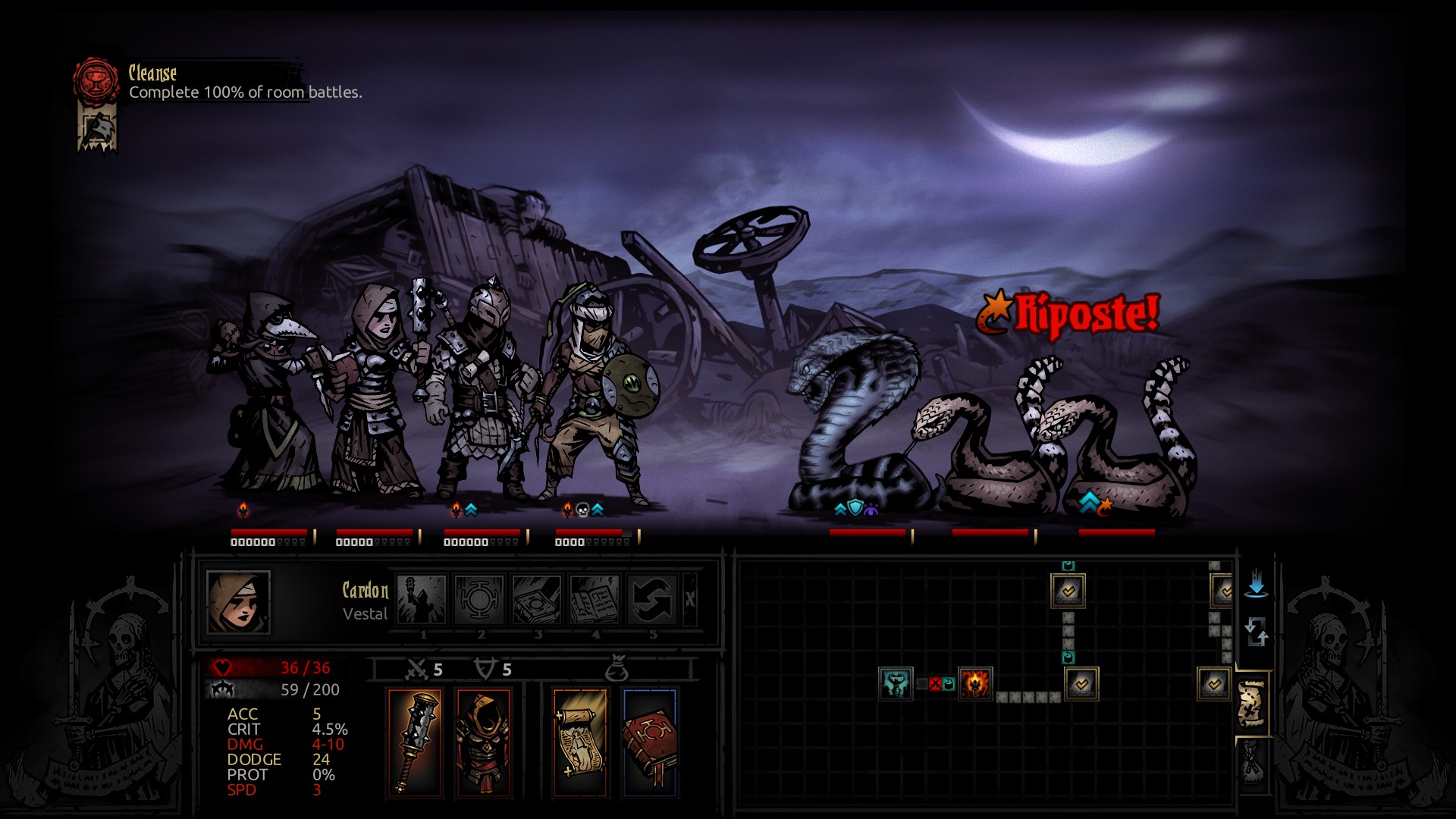Since its first appearance, Darkest Dungeon has been an indie darling. It met high praise on Kickstarter – as well as earning over $313,000 – and got rave reviews upon entering Steam Early Access in 2015. Even now Darkest Dungeon is beloved for its tough but fair gameplay. But there was a time, albeit briefly, Red Hook Studio’s game wasn’t so fondly thought of.
While still in Early Access, Red Hook introduced a series of changes to the game, seeking to make it even more difficult than it already was. A vast majority of players didn’t like these changing, saying it made the game too luck-based and grindy. If you want to hear more about that particular story, check our Tales From Early Access video below.
If so many players already loved the game, why would they introduce such drastic changes? That, itself, raises its own question: “when is listening to player feedback a bad thing?”
Starving for Feedback
When we think “Early Access,” a lot of us tend to think of a game relatively early in development. Developers often ask for feedback during this time, and if not, we tend to give them some anyway. But developers need to be careful when it comes to listening to that feedback.
Any developer worth their salt will have a vision for their game that they stick to. This vision can, and should, change over time, but there should also be a through-line that never changes. If you’re a developer and you start out making a Japanese visual novel, and by the time you’re done that same game is a gritty first person shooter, there’s no way it’s going to good. Well, maybe from the “can’t stop staring at a train wreck” perspective, but nobody wants that.
You have to be really careful, and know what changes to make to your game that will enhance your original vision, and what will only take away from it. The thing is, as well-intentioned as many of your players suggesting new features and changes are, they don’t always have a clear understanding of that vision. If you made a third person game, and somebody asks for a first person option, it might sound simply enough, but that’s going to cost a lot of time and money to implement. Those are resources you could have spent refining the combat so it’d be more enjoyable to everyone.

Striking a Balance
Listening to player feedback can be a trap if you’re only listening to a vocal minority of players. That’s the lesson Red Hook learned when a handful of Darkest Dungeon players wanted the game to be harder – when the vast majority of them, all playing quietly to themselves, thought the game was great as it was.
There are a lot of factors to consider when taking player feedback into account, especially with an unfinished game in Early Access. Developers need to know when to stick to their vision, when to compromise, and when they screwed up. Immediately after the updates, Red Hook was swamped with negative feedback, and to their credit, they responded by toning down the new changes immediately. In one swoop, they provided examples of when not to listen to player feedback, how to handle negative feedback, and when to listen to your audience.
This article is in Early Access. If you have any suggestions for grammar, content, or humorous musings, please leave them in the comments below. Your feedback is valuable to us.




I remember when the controversy came out about some of those changes a few months into early access. Some what recently I read up on them again, and I am still bewildered by the turnaround many fans expressed. At the time I remember thinking “oh these changes certainly do make the game more complicated” and liking them all in all, albeit lacking some balance. I think there is an element of change fans must adapt to during the Early Access process they aren’t trained to expect from full-release games.
There definitely is an interesting scenario where player feedback often necessitates more player feedback. That’s why it’s so important for developers to get to the root of why players are asking for something, rather than just taking that suggestion at face value.
I always like reading Josh’s articles. They are interesting, well-thought-out, and always fun to read. Thanks Josh 🙂
Wow, thank you very much! I’m glad you enjoy my content so much. I try to provide a thoughtful, balanced approach to my coverage. I really needed that comment today.
Back to work, you!